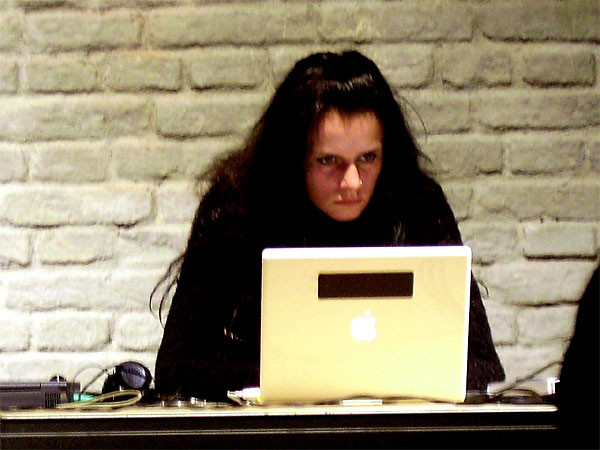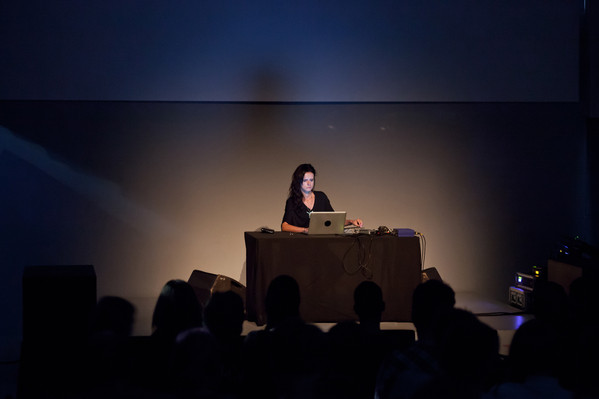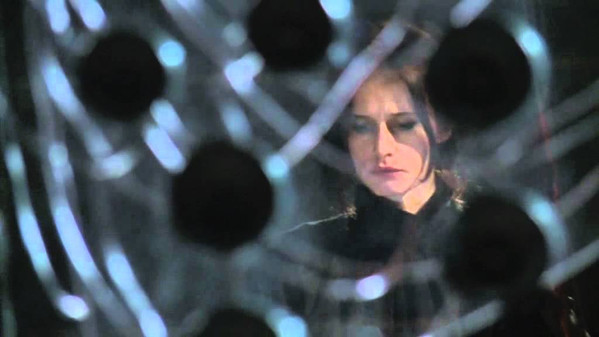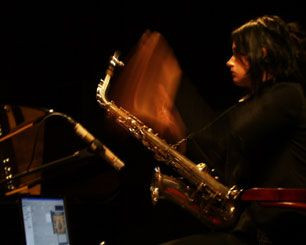Anna Zaradny
Настоящее имя: Anna Zaradny
Об исполнителе:
Sound and visual artist, composer, musician from Poland. Born in 1977 in Szczecin, Poland. Currenly lives in Warsaw, Poland. Zaradny, as a composer and improviser continues the experience of the musical avant-garde which undermines the traditionally perceived musical composition with its closed form, appointed notion, explicit authorship and legible identity. Her creativity arises from a certain revolution in music (in electronic or concrete music), where significant elements are subjected to change. These changes affect the role of the composer, notation as well as the perceptual habits of listeners. An idiosyncratic part in this process were founded on new technologies, broadening the so-called sound universe and the possibilities in manipulating sound and arranging audio material. Zaradny studied conducting and music theory in the Szczecin department of the Academy of Music in Poznań.For many years she was the co-organiser and curator of the Musica Genera Festival. In 2011 she was one of the top 7 artists nominated for the Views Deutshe Bank Foundation prize. She currently lives and works in Warsaw. Zaradny started her journey in the '90s with contemporary music, free-jazz, punk-rock and ska-punk (Włochaty, Dr Mengele). At the end of the decade she began working with a band called StuckOnCeiling (with Robert Piotrowicz, Sebastian Krawczuk, Kacper Jaskiewicz and later on- Jacek Majewski), initially performing experimental noise-rock which later evolved towards improvised music. The band held plenty of concerts, especially during 2000-2002. In her compositions, the artist uses a saxophone or a laptop. When playing the saxophone, she uses a wide range of techniques. She improvises when performing solo as well as with an accompaniment, live or in a recording studio. Here improvisation is similar to the meaning of experimental music according to John Cage, who emphasized that experimenting is not a laboratory process leading to a particular outcome, but openness to chance and the unpredictability of the attained results. Zaradny's improvisation obliterates the classical boundaries between an attempt and a properly played composition, the creation becomes an organic experience and the final form - if not registered - emerges from the process. Later on, Zaradny performed solo and participated in numerous projects, sometimes more ephemeral, sometimes rather durable (eg. Terra Polska, Terra Polska, Aux Pole'n, Art Rythmic Depot, Audio Art, Muzyka z Mózgu). She often performed in arranged 'ad hoc' formations, with musicians such as: Burkhard Stangel, Tony Buck, Cor Fuhler, John Butcher, John Hegre, Otomo Yoshihide, Martin Klapper, Boris Hauf, Sophie Agnel, Ute Volker, Ingar Zach. She participated in numerous international festivals. In years 2002-2009, together with Robert Piotrowicz the artist organised the Musica Genera international festival of improvised and experimental music in Szczecin. There also is a record label under the same name, closely related to the event. The unique formula of the festival is open to musical experiments, arranging musicians in such ensembles that would never have had a chance to work with one other, focusing on sound and the manipulation of sound. The eighth and last edition of the festival was held in 2009 in Warsaw. In 2003, the Musica Genera label published Can't Illumination, recorded in the Amman Studio in Vienna. The album was an improvisational composition of only two studio sessions by Zaradny (saxophone, computer), Robert Piotrowicz (guitar, synthesizer) and Burkhard Stangl from Austria (guitar, electronics). While remaining on the outskirts of the music industry, it was critically acclaimed as one of the most interesting music releases of 2003. During the Musica Genera festival in 2006 Zaradny perfomed with Cor Fuhler from the Netherlands (prepared piano) and Australian Tony Buck (drums). The collective improvisation of the three artists was recorded and released a year later on the album Lighton. Zaradny's first solo album, Mauve Cycles consisting of two electronic, minimalist compositions (25 and 13 minutes) was released not until year 2008. It received many, mostly enthusiastic reviews. The album combined rhythmicity and chaos. Massimo Ricci somewhat a bit effusively described one of the parts that it is probably the moment when Zaradny reaches the culmination point and it is impossible to not get carried away with the content which goes so deep, in spite the theoretical simplicity. Point-blank, it is a moment of transcendence, that only a few, who sense vibrations in a certain way, can achieve this. The artist herself emphasizes that the album is a materialization of a specific idea, evolving over time: The processing of these compositions began in concert conditions. I redefined this experience already in purely studio conditions. The basic form and course of the composition was determined then. On the other hand I was working on the electronic structure, which is a peculiar sonic sculpture. Banally saying, I needed more time with this work. The final outcome consisted of a lot of tiny details. Zaradny's perfomances also tend to be humorous. During the International Symposium on Electornic Art (ISEA) in 2010 she gave a spontaneous concert on an instrument created out of electronic installations connected to flower pots. At the same time she mastered the technique - the sound emerged when Zaradny touched the stems and leaves. Since 2004 Anna Zaradny has been creating music for performances, including the Szczecin Kana Theatre and Usta Usta Theatre from Poznań. She also composed music for plays directed by Marcin Libera (Death of the Squirrel-Man, God/Honor/Fatherland: Catherine de Medici) and Paweł Miśkiewicz (Peer Gynt in the Warsaw Dramatic Theatre).
Вариации названий:
Anna
Robert Piotrowicz
Zaradny




